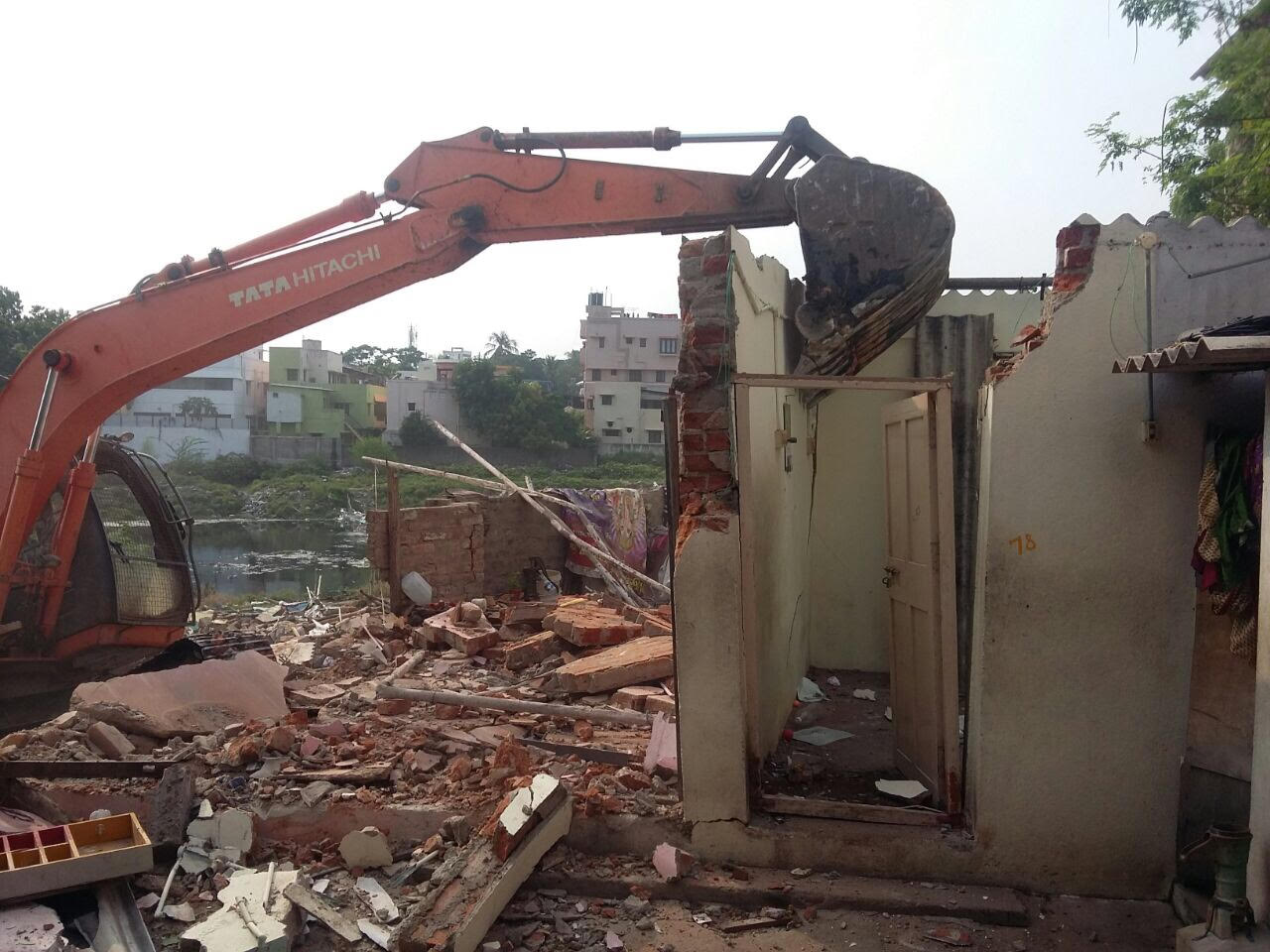
Madrasa students biggest losers as Centre, Delhi Waqf Board tussle over properties
Learning has suddenly come to a standstill for students of Bachhon Wali Masjid madrasa

On Tuesday (April 11), just after six in the morning, Bachhon Wali Masjid in central Delhi. Everything was going as usual at the 250-year-old mosque-cum-madrasa. The day’s first prayer had just got over for the 150-odd students engaged in preliminary learning at the seminary. Within minutes, everything changed. Officials from the Land and Development Organisation (L&DO) entered the complex, bulldozers in tow.
Members of the mosque got into a heated discussion with the L&DO officials, who said they were there to demolish a portion of the mosque complex, which they claimed was an encroachment. The L&DO functions under the Union Ministry of Housing and Urban Affairs.
No notice served
“It was an unforgettable morning. Moments after Fajr, one of five daily prayers, we were in our room trying to understand the meaning of the just-concluded recitation,” recalled Mohammad Hasan, a student at the seminary. “Around 6.10 am, we heard forces led by officials from L&DO quarrel with members of our mosque. The officials gave us 10 minutes to empty two rooms. Can someone empty a room in 10 minutes?”
Also read: AAP to apply for land in Lutyens Delhi next week to build office
Despite protests, a portion of the mosque was razed by the officials in what they claimed was an anti-encroachment drive. It was part of a series of demolitions being carried out by the New Delhi Municipal Corporation (NDMC), L&DO and Central Public Works Department (CPWD). A week ago, the NDMC had similarly razed a mazaar (tomb) to make way for a footpath opposite Sunehri Mosque near Udyog Bhawan in central Delhi.
Pointing at the razed structure, Hasan said the two demolished rooms housed students and had books and other study materials. “Our books, beds, water jars and other essential items have been destroyed,” he added.
Encroachment in dispute
The mosque management said it was given no prior notice, and denied charges of encroachment. The land, it said, was under the Delhi Waqf Board. In fact, Delhi Waqf Board chairman Amanatullah Khan had visited the premises during the demolition and had tried to reason with the authorities.
Watch: Have police encounters become a political tool for Yogi Adityanath govt?
A few months back, he was criticised for not replying to an L&DO order on seizure of 123 Waqf Board properties. The Bachhon Wali Mosque was among those 123 properties/ structures.
The L&DO officials have claimed that since this part of the madrasa was recently extended, it fell under the category of ‘illegal structures’. When contacted by The Federal, an L&DO official said they had orders from the top, but refused to divulge any further details.
According to Hasan, “the management decided to build a permanent structure as we were facing difficulties due to the tin shed.”
Students suffer
“Students worked along with the construction workers to build the structure. We invested our time and effort as we envisioned a brighter future. The construction was carried out with the help of donations that the committee had collected over the years,” said Hasan, who hails from Bihar’s Kishanganj.
Imam Mohammad Kashmi said Bachhon Wali Masjid hosted over 150 Muslim children, mostly from the underprivileged section of society. “There are students from Delhi and other adjoining states. We have a few students from Manipur, too. The children were given preliminary education on various subjects,” Kashmi said.
Also read | Delhi govt has failed us: Sultanpuri hit-and-run victim Anjali Singh’s family
After completion of their basic education, many of them enrol in the nearby MCD school and thereafter, depending on their acumen and interest, go on to pursue higher education, said Kashmi, who has been an Imam at the mosque since 2007.
“The madrasa offered basic preliminary learning in mathematics, science, Urdu and religious scriptures. Over the years, students have made it to government schools and then have also enrolled in Jamia Milia Islamia for higher studies. It is solely because of our foundational learning,” said Irfan Yumksambam, a teenager from Imphal. We “have been denied of our basic right to education. Students’ right to education is sacrosanct, and should be above politics,” Yumksambam added.
Appeal to govt
In an appeal to the government, he asked help for reconstructing the damaged parts of the madrasa. “We want to study and give ourselves the best chance to thrive in this competitive world,” the teenager said.
Rashmi Begum, a parent, voiced her concern over the demolition drive. She said her husband died after a prolonged illness, thereby forcing her to send her children, Rizwan and Mohsin, to the madrasa.
“Economic considerations played a big part in my decision. However, I was very happy with the teachers here. My children had a good grasp over the basics. I was particularly happy as the curriculum included a mix of essential subjects — maths, science and history with teachings of religious scriptures,” she said.
There is an ongoing case in the Delhi High Court over notices given to 123 such properties of the Delhi Waqf Board by the L&DO. Following the demolition at Bachhon Wali Masjid, the Waqf Board went to the court for an urgent hearing which was held on Thursday. The Delhi HC asked the Centre to not take any precipitative action against any of the 123 properties till the next hearing on April 18 (Tuesday).
The general secretary of the Islamic seminary Madrasa Tahfizul Quran, Matlub Karim Hafiz, said: “In this ongoing tussle between the Centre and the Delhi Waqf Board, why should the students suffer? Don’t they have a basic right to education? The matter pertaining to the seizure of 123 Waqf properties by de-listing them from Waqf Board, is sub-judice. The court is yet to pronounce a comprehensive order on it.”


